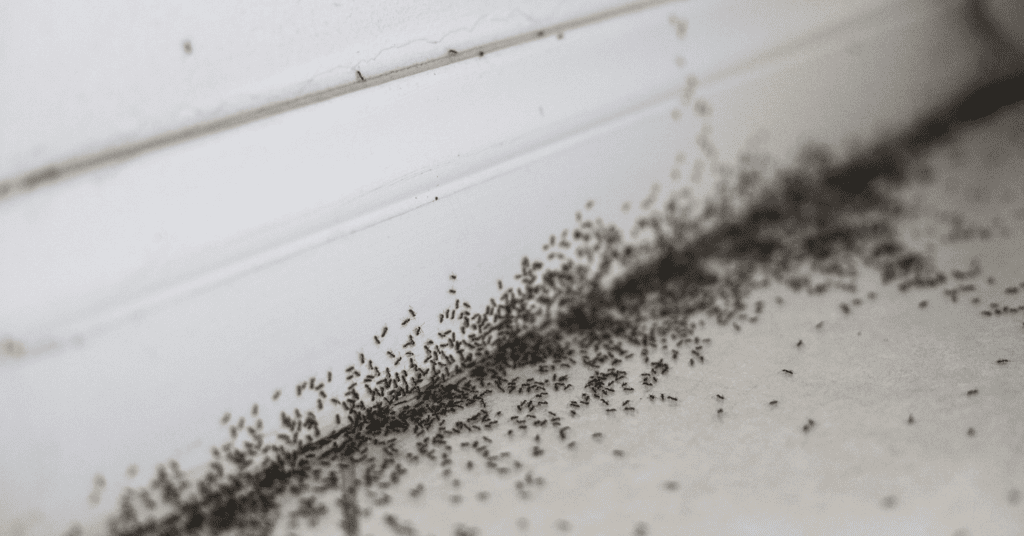How Long Does Pest Control Last?


Pest control is an important aspect of maintaining a healthy and clean living environment. It involves the use of various methods to control or eliminate pests such as insects, rodents, and other unwanted creatures that can cause harm to human health or property. However, a common question that many people have is how long does pest control last? In this article, we will discuss the different factors that can affect the effectiveness of pest control and how long it typically lasts.
Factors Affecting the Longevity of Pest Control
1. Type of pest control method used:
- The type of pest control method used plays a significant role in how long the treatment will last. Some methods, such as chemical sprays, provide short-term relief but require repeated application to maintain their effectiveness. On the other hand, some methods such as integrated pest management (IPM) are more effective and provide long-lasting results.
2. Severity of the infestation:

- The severity of the pest infestation also affects how long the treatment will last. If the infestation is severe, it may take more time and effort to eliminate the pests entirely, and the treatment may need to be repeated several times. If you’re dealing with a persistent issue such as an ant infestation during your outdoor activities, you might want to check out our tips on how to create the perfect pest-free picnic.
3. Environmental factors:
- Environmental factors such as temperature, humidity, and weather conditions can also affect how long pest control lasts. For example, high temperatures can speed up the reproductive cycle of some pests, which can make it more challenging to eliminate them. Just as weather conditions can influence the effectiveness of pest control, so can the presence of water bodies which might attract certain insects. Read more about dealing with swimming pool water bugs if you have a pool at home.
4. Location:


- The location of the pest infestation can also affect how long the treatment will last. Pests that are located in hard-to-reach areas, such as attics or crawl spaces, may require more extensive treatment and may take longer to eliminate entirely.
5. Pest control company and technician:
- Quality of service: The effectiveness of pest control depends largely on the quality of the service provided by the pest control company and technician. A reputable company with experienced and knowledgeable technicians is more likely to provide effective pest control that lasts longer than a less experienced or less reputable company.
- Maintenance and follow-up: Many pest control companieins offer maintenance and follow-up services to ensure that the pest control remains effective. Regular inspections and treatments can help to detect and prevent future infestations, which can extend the longevity of pest control. Just as you would protect your home from pests, it’s essential to safeguard the celebrations too. Find out how to keep your backyard party bug-free.
6. Building and construction:
- Age of building: Older buildings may be more susceptible to pest infestations than newer buildings due to wear and tear or outdated construction techniques.
- Construction materials: The type of construction materials used can affect pest control longevity. For example, buildings with wooden structures may be more susceptible to termite infestations, while buildings with concrete structures may be more resistant. Buildings with wooden structures might not only be more prone to termite infestations but can also attract other unwanted guests such as carpenter bees. Learn how to protect your home from carpenter ants and related pests.
- Cracks and crevices: The presence of cracks and crevices in the building can provide entry points for pests, which can make pest control less effective. Sealing these entry points can help to prevent future infestations and extend the longevity of pest control.
7. Lifestyle and habits:


- Cleanliness and sanitation: Maintaining a clean and sanitary living or working environment can help to prevent pest infestations and extend the longevity of pest control. Regular cleaning and proper storage of food and garbage can make the environment less attractive to pests. An essential part of pest prevention is maintaining kitchen hygiene to deter ants and other pests. Discover how to stop ants in your kitchen for a pest-free cooking space.
- Clutter: Clutter can provide hiding places for pests and make it more challenging to detect and eliminate infestations. Reducing clutter can make pest control more effective and help to prevent future infestations.
The duration of pest control depends on various factors, such as the severity of the infestation, the type of treatment used, and the location of the pest infestation. Generally, most pest control treatments can last anywhere from a few weeks to several months.
It’s challenging to determine how long pest control will last since it depends on various factors. Some pest control methods may provide long-term results, while others may require more frequent applications. The duration of pest control effectiveness also depends on the severity of the infestation and the preventive measures taken to avoid future infestations.
For example, chemical treatments may provide effective pest control for a few weeks to several months, depending on the type of pest, the level of infestation, and the environment. However, they may require repeated applications to maintain their effectiveness, especially if the infestation is severe or if the pests have developed resistance to the chemicals.
On the other hand, treatments such as IPM can provide long-lasting results by focusing on preventing pests from entering the property in the first place. This method involves a combination of techniques such as monitoring, sanitation, and exclusion, which can reduce the likelihood of pest infestations in the future. However, this method may take more time and effort to implement, and it may not be effective for severe infestations.
Overall, the effectiveness of pest control treatments can vary widely and depend on many different factors, making it challenging to predict precisely how long it will last. It’s best to work with a pest control professional who can assess your specific situation and recommend a treatment plan that will provide long-term pest control. As we prepare our homes for different seasons, it’s vital to consider potential pest issues like the 7 most common Christmas tree insects and how to prepare for them. Additionally, following their recommendations for preventive measures, such as regular cleaning and maintenance, can help to ensure that the pests do not return.
Ready to ensure your home is protected from unwanted guests? Our expert team at West Vancouver Pest Control, North Vancouver Pest Control, Vancouver Pest Control, Burnaby & New West Pest Control, Coquitlam & Tri-Cities Pest Control, and Richmond Pest Control is just a click away. Whether you’re up north, in the heart of the city, or nestled in the suburbs, we’ve got your back. Don’t let pests put a damper on your peace of mind. Contact us today to schedule an inspection and take the first step towards a pest-free home!
